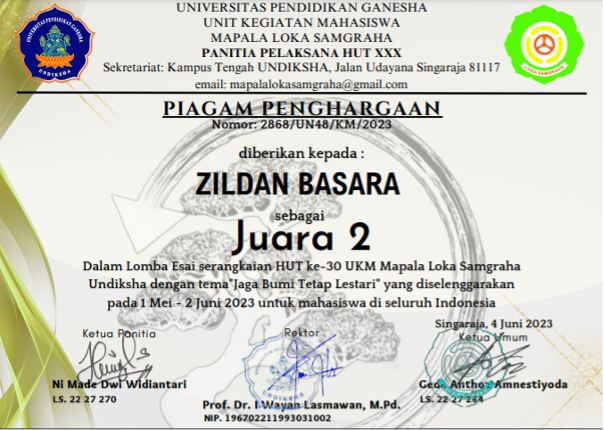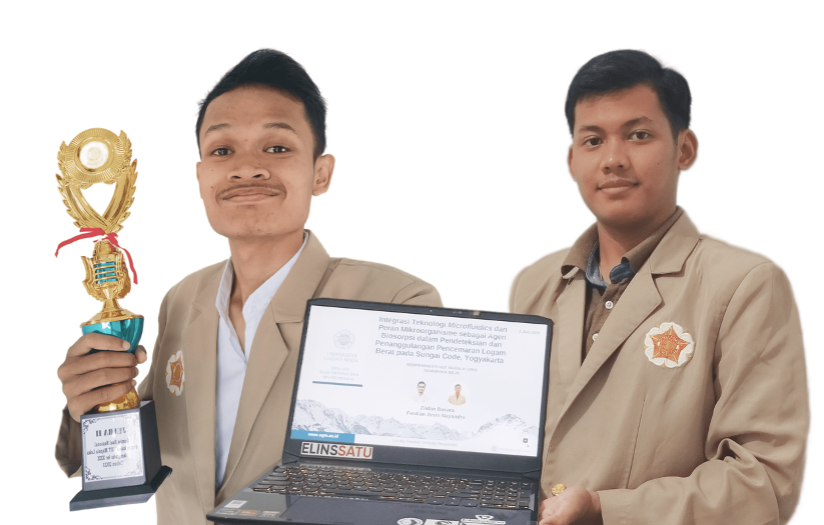Biology students at Gadjah Mada University (S1) Zildan Basara made another achievement at the national level by winning 2nd place in the National Essay Competition in collaboration with student of Electronics and Instrumentation (S1), MIPA Faculty UGM Ferdian Arvin Nayandra.This national-level essay competition was organized by UKM MAPALA LOKA SAMGRAHA Universitas Pendidikan Ganesha, namely “Jaga Bumi Tetap Lestari”. The competition was opened on 1 May 2023, and the winners were announced on 10 June 2023.
In this competition, the team took the sub-theme Technology and Environmental Innovation with the title “Integration of Microfluidics Technology and the Role of Microorganisms as Biosorption Agents in Detection and Mitigation of Heavy Metal Pollution on the River Code, Yogyakarta”. The team discusses that rivers in Indonesia are vital resources for human life, serving as a source of drinking water, agricultural irrigation, transportation, and also rich in biodiversity. Unfortunately, many rivers in Indonesia Suffer from serious pollution, including being contaminated by heavy metals. According to the data from Bureau of Statistic (BPS), throughout the year 2021, 10,683 villages in Indonesia suffered from river contamination. In addition, according to the same data, approximately 46 percent of Indonesian rivers have experienced severe contamination, 32 percent have moderate, 14 percent have moderately polluted, and 8 percent have mild contamination. (Ministry of Maritime Affairs and Fisheries, 2022). In the past few decades, the Code River has experienced significant pollution levels, including contamination by heavy metals such as lead (Pb) and cadmium (Cd), which enter the river through poorly managed industrial and domestic waste (Harian Jogja, 2021).
Therefore, it is essential to develop sensitive and effective detection methods to identify the level of heavy metal contamination in River water. In addition, bioremediation approaches are also needed to eliminate heavy metal contamination, where microorganisms capable of reducing or eliminating heavy metals can be utilized to naturally clean the river. The essay aims to integrate microfluidics technology as sensitive biological sensors in the detection of heavy metals, and utilizing microorganisms as bioremediation agents that can reduce the level of heavy metal contamination in the river Code water.



